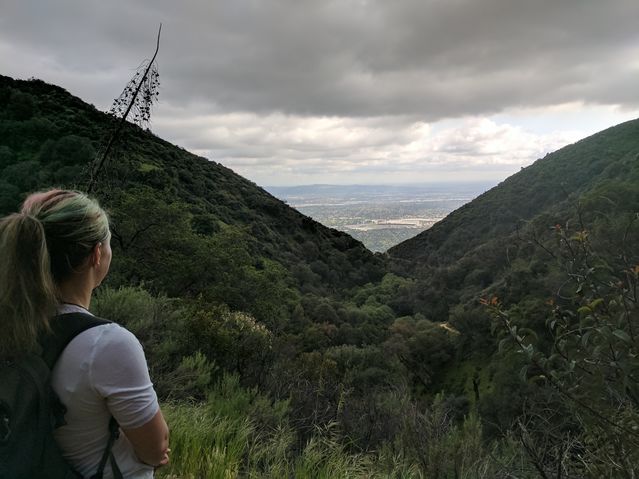Decision-Making
How to Make the Decision to Get Better
Recovery from anorexia is simple (if not easy): Part II (Making the decision).
Posted October 1, 2017
Recovery from anorexia is simple (if not easy). Like all titles, this one oversimplifies. Lots of what is involved in recovery is neither easy nor simple. But most of the complicated stuff comes later. At the beginning, nothing complicated is needed. Coming to the decision to do something will feel complicated, but reduced to its essence, it isn’t. As I described in Part I, the sensible way to frame the decision about whether or not to start recovery is as follows: Do I want to keep eating as I am, or do I want to add 500 kcal a day to my intake? (See e.g. Waller et al., 2007, pp. 85-86 on why 500.) The seething currents of conflict in both directions may feel, as the question is posed, near-unsurvivable, but there’s much to be said for focusing the mind implacably on this simple behavioral binary: The same amount of food or a quantified amount more.
Yes, the quantified amount more is coming with all kinds of promises attached about how it will change your life, but you probably don’t believe any of them anyway, just as you don’t believe all the dire warnings about will happen if you stay as you are, so bracket these off for a moment: Separate the certain from the possible or probable. The question is, are you willing to make this single change to the meal structure of tomorrow, and every day after that, until something else changes, or doesn’t? The qualifier until something else changes, or doesn’t, may feel like the sticking point, but remember that what will or won’t result from eating more or not eating more comes in the category of the probable, or the possible, not the certain. The only thing in the certain category is the fact of eating more, in itself.
Then there are all kinds of evidence to gather into the other two categories. There's all the evidence for change: for how and why a starved body and mind need food to heal themselves, and how and why they will heal themselves, given the means. The reasons to think this healing highly probable come from basic physiology (e.g. Dulloo et al., 1997) and from cognitive neuroscience (e.g. Kidd and Steinglass, 2012), from controlled behavioural interventions like the Minnesota starvation study, from anecdotes like the tale of my own recovery and many others like it—you’ve probably read plenty of all these things already. Depending on your inclinations and your situation, you’ll give these different forms of evidence varying weightings, and your application of the evidence to yourself will have more or less conviction and capacity to convert into action.
Alongside all the evidence supporting change comes all the evidence against staying as you are. There's how bad (limited, unhappy, precarious...) your life is now, in all the ways you are doubtless familiar with contemplating. Then there's how much worse (or differently bad) it will become if this change is not made. After all, not taking action does not mean that everything will stay the same. Indeed, if there is anything certain about our universe, it is that nothing ever stays the same: At all levels, from cellular reproduction to the rise and fall of empires, nothing is permanent. So, know that depending on what you do or don’t do now, one of these things must happen:
a) You will die, either of complications arising from anorexia or from something unrelated, with anorexia still intact;
b) You will make the transition to another diagnosis, perhaps bulimia, binge-eating disorder, or some version of the capacious EDNotOtherwiseSpecified category;
c) You will recover enough to leave this diagnosable territory behind you, but not enough to leave behind the no-man’s-land (which is very many women’s only-ever land) of near-constant low-level dissatisfaction and anxiety about food and your body;
d) You will recover fully, and while other things in life will sometimes be difficult, food and your body will be primary sources of happiness and support, not of pain or weakness.
Eating more, systematically, is how you make (d) more likely and (a), (b), and (c) less. Again, your decision will or won’t make itself, now or on some day to come, but for as long as it continues not to be made, and the status quo persists, (a), (b), and/or (c) grow more and more probable. (See this post for more on this theme.)
So, no, it is true that you have no guarantees that anything at all will change for the better if you do start to eat more. But if you reduce the decision you are making to that Yes/No option (this much more food, or not), and you think the Yes option (this much more food) is likely to be bearable, and you think it’s also at least moderately likely to yield the other changes you want (or prevent the ones you don’t), then Yes makes sense. And is, by definition, bearable.
Time plays a strange role in all this. You are contemplating action on the most trivial timescale (breakfast in the morning or not) in order to affect the grandest timescale you will ever know (the rest of your life). This discrepancy can be paralyzing, not least because it’s hard to comprehend how one could flow into the other. What helps most, perhaps, is to remember that you are making this decision for now, for tomorrow morning. And you are basing it on what you know now. This knowledge embraces many possible futures, none of them certain except tomorrow’s. If you take the leap now, and in some number of days or weeks or years decide that you wish you hadn’t – well, you can always go back to something pretty similar to now.

Whatever you do, don’t expect certainty of yourself. You will never be completely sure you want to be rid of anorexia, nor completely ready to be. The certainty and the readiness will come to you only after you’ve begun to cast it off. Until then, accept your doubt, your cynicism, your equivocation. Establish what it is they refer to, and how much credit they deserve. And even if there is some value in those hesitations, ask yourself how much you really have to lose by trying something different. For me, by the end, life was not unbearable, but nor was it worth very much. If it became more awful, at least it would be a different awful. At least it would not be more of this.
Perhaps, then, the very awfulness of not knowing what will happen when you choose Yes is a potent part of what makes us choose it in the end: The fear of knowing that anything could happen is, in the end, preferable to the despair of knowing that nothing is ever likely to. In this sense, the choice is simpler still: between living and not.

The evening on which, in a bar in Oxford, I came to the decision to start eating more again (described in this post) was in one sense the most momentously deliberate decision I have ever had to make. It changed everything, and was the culmination of many years of failure to manage it. But in another sense, it was as though after the long hours of conversation about the pros and cons, after the assessment visits to the clinic, after the Prozac I'd started taking, after the crucial things others had said and done to intrude on the silence of my illness, after all the years of contemplation this way and that - it was as though there was no decision left to be made. The evening drew to a close, and there was nothing else to be done but this. Going to the supermarket with my friend Edmund, letting him choose and buy what I would eat for breakfast tomorrow.

The moment was now, whether I was ready or not. I never would be, not deep down, but this thing needed doing regardless. The steeliness of that conviction was partly a strong sense of personal agency (I can actually do this now, for real; I'll prove wrong all those who don't believe it, i.e. everyone). But it was also a sense that something had already begun to shift, almost despite me. I didn't have to summon up the movement through pure effort of will; I merely had to keep up with the momentum that was already gathering.
Be open to the hesitant blossoming of such feelings. They can be the beginning of a half-life's surrender to the real thing.
So, then, what about this plan to take you from one to the other? Time for the third instalment.
References
Dulloo, A.G., Jacquet, J., and Girardier, L. (1997). Poststarvation hyperphagia and body fat overshooting in humans: A role for feedback signals from lean and fat tissues. The American Journal of Clinical Nutrition, 65(3), 717-723. Abstract here.
Kidd, A., and Steinglass, J. (2012). What can cognitive neuroscience teach us about anorexia nervosa? Current Psychiatry Reports, 14(4), 415-420. Full text here.
Waller, G., Cordery, H., Corstorphine, E., Hinrichsen, H., Lawson, R., Mountford, V., and Russell, K. (2007). Cognitive behavioral therapy for eating disorders: A comprehensive treatment guide. Cambridge: Cambridge University Press. Google Books preview here.




